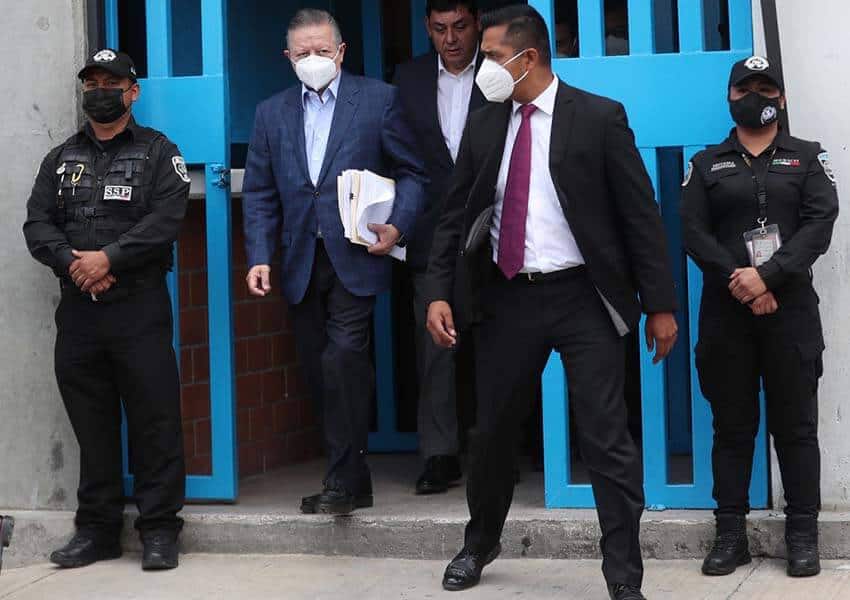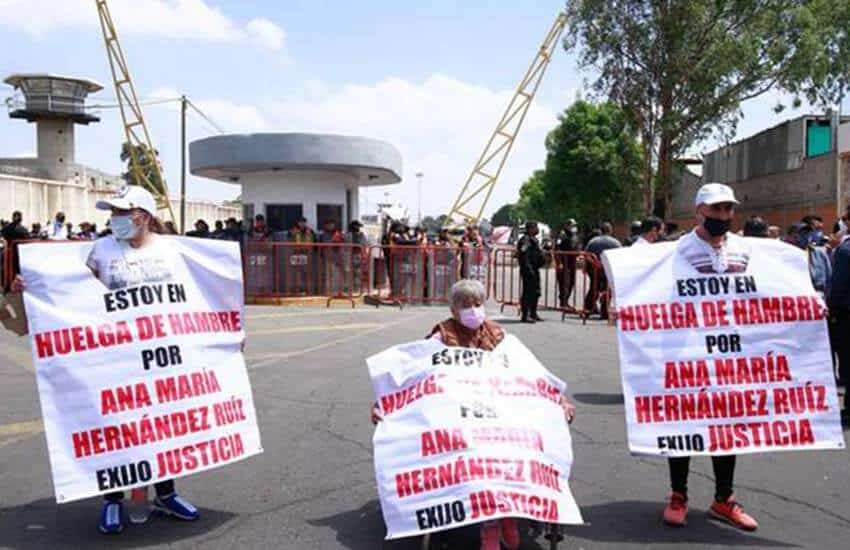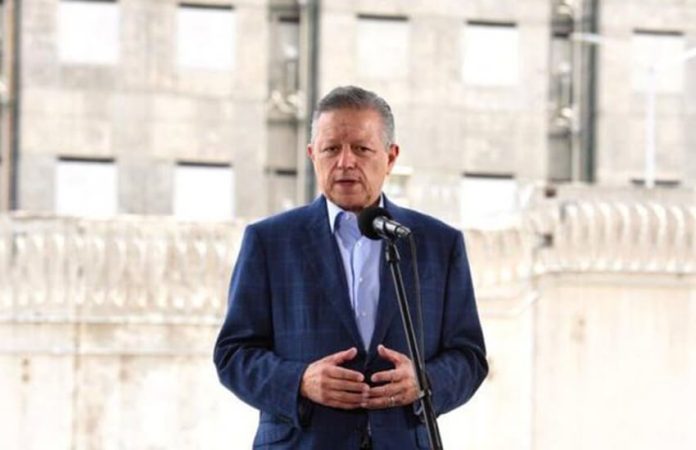Criminal suspects in Mexico can spend as long as 10 to 15 years in prison awaiting trial but it is not a practice that has the support of the chief justice of the Supreme Court. In fact, Arturo Zaldívar wants to see change.
Zaldívar has spoken out before against the frequency with which accused criminals are sent to prison for pretrial detention, where they often languish for years without being convicted of any crime.
“In Mexico, there is an abuse of preventative prison,” he said after a historic visit to a Mexico City women’s prison last week.
Zaldívar said pretrial detention should be the exception rather than the rule, used when the accused is a flight risk or there is a danger that evidence will be destroyed or witnesses’ safety will be placed at risk.

His remarks came after he visited the Santa Martha Acatitla women’s prison in the Mexico City borough of Iztapalapa last Wednesday
Zaldívar, the first sitting Supreme Court chief justice to visit a prison, met with some 220 inmates, among whom was former cabinet minister Rosario Robles, who is accused of involvement in a government embezzlement scheme known as the “Master Fraud” but is yet to face trial almost three years after she was jailed.
The chief justice told a press conference that between 60% and 70% of prisoners at Santa Martha Acatitla haven’t been convicted of the crimes of which they are accused. “I confirmed the vices of the Mexican criminal system that I’ve been pointing out for a long time,” Zaldívar said of his visit.
The justice, who clashed with President López Obrador last year over a Supreme Court ruling against preventative custody for people accused of certain crimes, said the use of pretrial detention by judges needs to be reviewed. Clearer criteria must be established, he said, adding that lengthy legal processes that leave people in jail for 10 or 15 years without being sentenced must be eliminated.

According to Mexican laws, pretrial detention shouldn’t exceed two years, but it often lasts much longer due to the nation’s sluggish and overburdened justice system. According to government figures quoted by the NGO Human Rights Watch in 2018, there were 80,000 people in Mexican prisons awaiting trial, about 41% of the total prison population.
Zaldívar’s prison visit came after he received a letter from inmates asking for the opportunity to present their cases of injustice to him.
It also came after the stepdaughter of the federal attorney general’s brother was released from the Santa Martha Acatitla prison more than 500 days after she was jailed on charges of “homicide by omission” for allegedly failing to provide adequate medical care to her stepfather. The case of Alejandra Cuevas was one high-profile example of a person being kept in prison for an extended period of time despite a lack of evidence to prove his or her guilt.
Zaldívar acknowledged that some prisoners face charges for crimes that have been fabricated. “It’s something that is extremely painful — fabricated crimes, violations of due process, the failures of prosecutor’s offices, judges and police,” he said.

The chief justice asserted that his visit could be the catalyst for a change in the way preventative prison is used.
“I told the women that there could be results from this visit,” Zaldívar said before calling on judges to be more sensitive and to consider the impact their rulings have on the people involved in the cases they hear.
The number of crimes that warrant preventative custody has increased in recent years as the government seeks to combat insecurity, which is a major problem in many parts of the country. Fuel theft, corruption and home burglaries are among the crimes that have been added to the list.
Paola Zavala, a lawyer and specialist in societal reintegration for former prisoners, told the newspaper El País that imprisonment is seen as an easy fix to crime – even though impunity in Mexico remains rife – but doesn’t reduce violence.
“In the face of social problems – prison,” she said. “The demand for justice in Mexico has been reduced to jail because it’s the easy way out for lawmakers, but it doesn’t solve violence.”
Zavala described Zaldívar’s prison visit as an important step toward the establishment of an improved justice system in which judges don’t rely so heavily on preventative prison.
“All the judges and all the lawmakers should go [to a prison] to see with their own eyes where they are sending people,” she said.
With reports from El País
